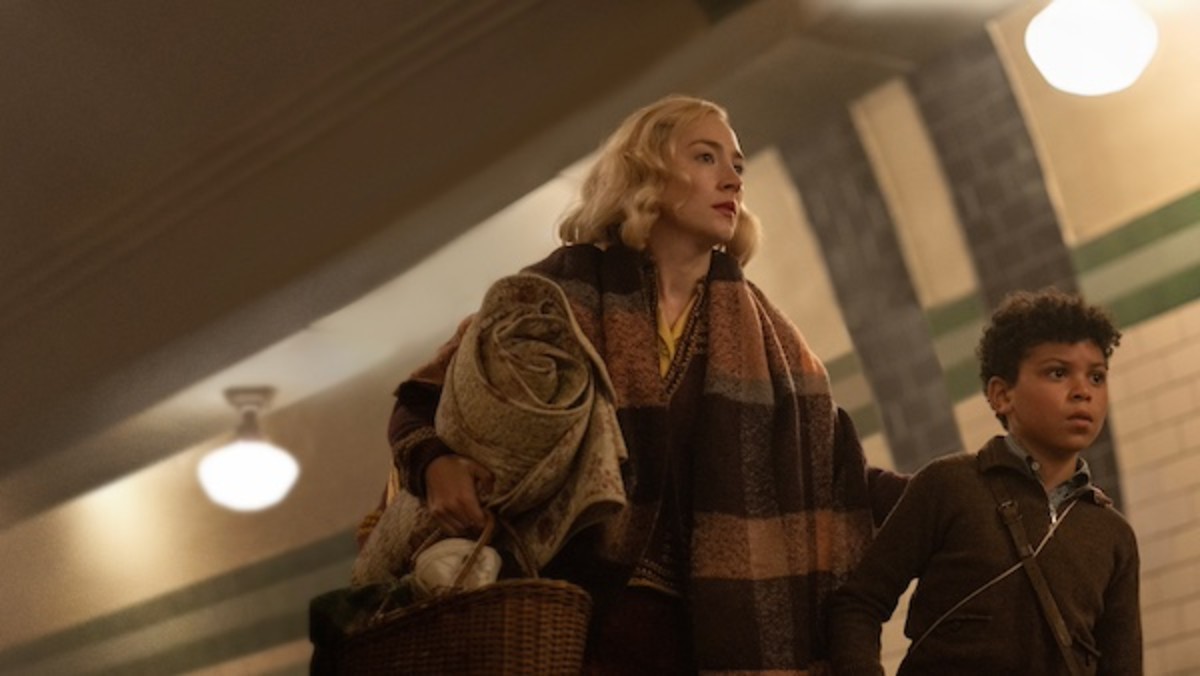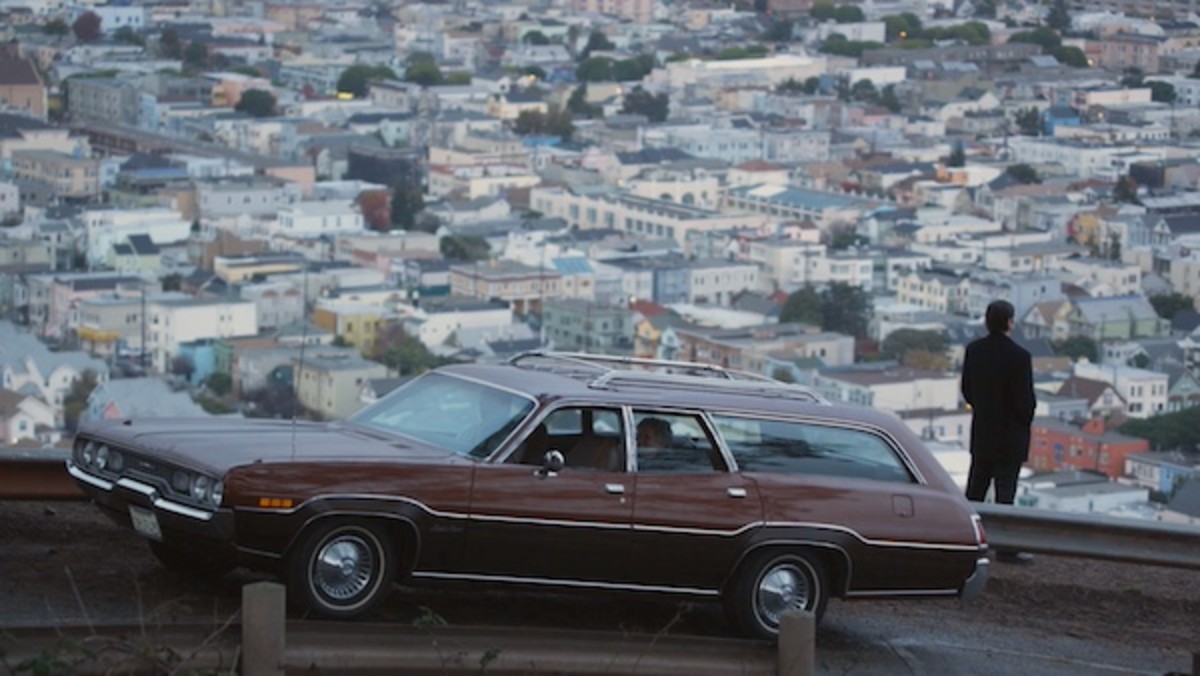These three films highlight three directors with varied voices and approaches to storytelling.
Susan Kouguell Senior Contributing Editor Script Magazine
Blitz, the closing night film of the New York Film Festival directed by British director Steve McQueen and two of the Main Slate films The Room Next Door directed by Spanish director Pedro Almodóvar and the documentary Suburban Fury directed by American filmmaker Robinson Devor, highlight three directors with varied voices and approaches to storytelling.

Written and directed by Steve McQueen, Blitz centers on the parallel perspectives of working-class single mother Rita (Saoirse Ronan) and her 9-year-old bi-racial son, George (Elliott Heffernan), as they become separated within the maze of a city under siege of 1940s WWII London.
George’s odyssey to reunite with his mother is Dicksonian in a quest for survival. The amount of time (several days?) in which the plot unfolds is briefly referenced but it doesn’t quite seem accurate; perhaps it’s an intentional choice to reflect the blur and almost unbelievable events that unfold. The tone and images, and the thematic determination of a young male protagonist seen from his POV was somewhat reminiscent of Europa Europa directed by Agneszkia Holland whom I also interviewed for this publication. Both films chronicle racism and identity in WWII, and challenge the viewer to enter their respective worlds with a distinct vision.
McQueen’s previous film, Occupied City, a documentary with Bianca Stigter (both of whom I interviewed for this publication) also portrayed a capital city, in this case, Amsterdam, under siege by the Nazis. In interviews, McQueen explained that it was somewhat accidental that these two films were released back-to-back.
In press conferences, McQueen noted that “it was important to me that the movie be an epic. The reason it was important is because of scale. Seeing the Second World War through the eyes of a prepubescent child was important to give us a refocusing of where and who we are now. It is echoed in wars going on now…and with the recent race riots in the UK, the film has so much relevance to what’s going on now, even though it’s set in the 1940s.”
It’s interesting to note that currently on exhibit and running through the summer of 2025 at the Chelsea Dia gallery in New York City, McQueen is the featured artist. His piece Sunshine State (2022), a two-channel, dual-sided video projection is described as a story about McQueen’s father to examine notions of identity and racial stereotypes. This work, along with another video piece and his photographs, underscores McQueen’s range as a visual artist and filmmaker who consistently pushes boundaries of storytelling.
Blitz opens in theaters on November 1 ahead of its streaming debut on Apple TV+ on November 22.

Pedro Almodóvar wrote and directed the film, his first English-language feature, which is loosely adapted from the novel What Are You Going Through by Sigrid Nunez. The film centers on Ingrid (Julianne Moore) a best-selling writer and Martha (Tilda Swinton) a war journalist; their friendship is rekindled and tested when Martha makes a life-altering request to Ingrid.
At the press conference, Almodóvar stated that the book was unadaptable because of the many details, but was interested in one chapter in particular: “When Julianne’s character goes to the hospital to see her friend. I was interested in the two women reuniting, and their need to talk.” He added that he set out to develop these two women from “a generation that I love; the mid-1980s.” When discussing the inclusion of Damian (John Turturro) in the script he explained that he used his character to voice Nunez’s environmental concerns “and how dangerous neoliberalism is linked with the far right. It was important to give that message in a country that will have an election soon.”
The Room Next Door opens theatrically in New York City and Los Angeles on December 20, 2024, followed by a limited release in select US cities on Christmas Day, and a January 2025 wide US release.

In 1975, Sara Jane Moore attempted to assassinate President Gerald Ford in San Francisco and served 30 years in prison. Moore, the only person interviewed for this film, is the unapologetic subject of Suburban Fury a documentary by Robinson Devor, Moore tells her own story: from housewife (several husbands) and mother (several children), to FBI informant to would-be assassin, all of which are set against the backdrop of the era’s political unrest and militancy, including the Black Panthers, and Patty Hearst and the Symbionese Liberation Army.
At the press conference, Devor and his team discussed uncovering relatively unseen archival footage, the choice to avoid familiar music soundtracks of the era, and filming Moore (over the course of 11 days) in unconventional locations such as a 1970s-era Suburban station wagon. Although the assassination attempt occurred almost 50 years ago, the film is timely.
The inclusion of numbers integrated between various sequences of scenes was an interesting device but the intention was unclear and didn’t have a clear payoff. Moore is the definition of an unreliable narrator of her personal story and her involvement in historical events, leaving the viewer to decide what is fact and what is fiction.